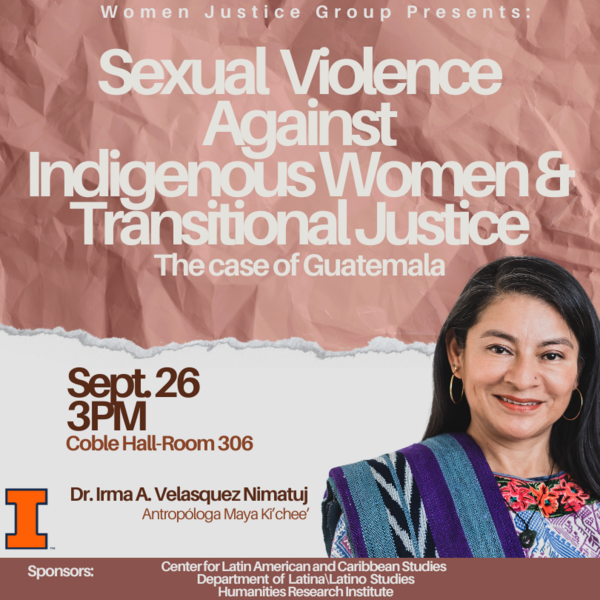
Women Justice Group Presents: Sexual Violence Against Indigenous Women & Transitional Justice: The Case of Guatemala
- Event Type
- Lecture
- Sponsor
- Center for Latin American and Caribbean Studies; Department of Latina/Latino Studies; Humanities Research Institute
- Location
- Coble Hall, Room 306
- Date
- Sep 26, 2024 3:00 pm
- Speaker
- Dr. Irma A. Velasquez Nimatuj
- Contact
- Center for Latin American and Caribbean Studies
- Views
- 115
- Originating Calendar
- Latina/Latino Studies Event Calendar
This presentation focuses on the problematic nature of court-ordered reparations and the struggle for human rights for indigenous people, specifically women, in Guatemala. By discussing the Sepur Zarco case, named after an almost unknown q'eqchi' community in El Estor, Izabal department of northeast Guatemala, I would like to show how racism, sexual violence, and poverty coalesced during the Guatemalan genocide period from 1975 to 1988. This coalescence, in turn, not only increased the violent nature of state-sponsored human rights abuses, but also illustrates how those oppressions continue to affect indigenous war survivors today.